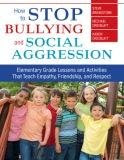|
1. What’s it
about?
The much-talked
about, oft-debated documentary looks at the problem of
bullying in schools from the perspective of five kids and their
families, mostly from small towns. Two of the families included have
lost children to suicide as a result of bullying. The stories are
powerful and not only look at the problem through the victims’ eyes,
but also offer some solutions for how society should deal with
bullying. The film opened in New York and Los Angeles a couple of
weeks ago and opened in 50 additional cities yesterday.
2. Does it live
up to the hype?
There was an awful lot of talk
surrounding this movie, possibly more hype than it was possible to
live up to. And the movie was still good and worth
seeing. However, I kept waiting for the big ending and the
important takeaway … and there wasn’t one. Toward the end, one of the
kids featured in the film says we “can’t change it all at once” and
maybe that’s the lesson. If we all make little changes, we might
eventually end this problem. Like Curtis Silver said
yesterday, ending bullying requires vigilance.
3. Will I like
it?
I’m not sure “like” is appropriate
for a movie that’s meant to make you feel at least a little
uncomfortable, but the story is well told and the people featured are
likable (except for the most inept school administrator on the face
of the planet). The film moves quickly and it’s definitely worth
seeing.
4. Is it
appropriate for kids?
Absolutely. There is bullying
violence and some language, but, unfortunately, probably not anything
your kids haven’t seen or heard before. There’s value for all kids,
whether they are bullies, have been bullied, or are bystanders. When
kids see how other kids are going through similar issues to them,
perhaps they will make a change for themselves or help others.
5. Is it closer
to PG-13 or R?
I was shocked that this movie was
rated R at one point. Even with the addition of the three f-words
that were cut, it wouldn’t have felt even close to an R. The
language that is in it comes at the beginning and is forgettable.
However, there is content in it that is more worth mentioning than
the profanity.
There are some families in this
movie whose children have committed suicide. Other kids talk about
either thinking about it or attempting to kill themselves or hurt
themselves. This issue is definitely worth a discussion with your
kids, because the movie is a documentary and what happens on screen
is all very real.
6. Is it too
scary?
It’s purposefully uncomfortable.
There were moments so astounding — regarding the stupidity of adults
— that there were audible gasps from people in the theatre where I
saw the movie. Some kids who have been bullied may have a difficult
time watching kids onscreen be abused both verbally and physically.
Further, there’s a moment where a girl who was bullied brings a gun
aboard a bus and waves it about, which may be scary to some kids.
7. Will I want
to see it again?
I will be going again so my kids
(age 10) can see it. I’m not sure there’s much point in seeing it
again after that, though. After the first viewing, the message will
have been delivered, and there wasn’t a lot of nuance that could have
been missed.
8. When’s the
best time for a bathroom break?
The movie is just 94 minutes long
and moves along at a brisk pace, especially for a documentary. However,
there are still a couple moments when you could leave: first at the
30 minute mark after meeting Tyler’s parents, and then again at the
60 minute mark after meeting Devon.
|




